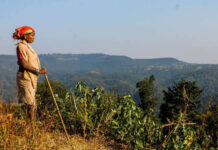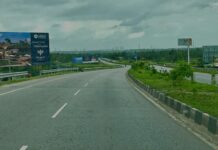Narrated by Aarathi Ganesan
Edited by Nidhi Rejithlal
The number of national parks and reserves in India are increasing. Between 1987 and 2020, the numbers of these “protected areas” rose from 87 to 903. Many endangered species are thriving thanks to these conservation projects.
However, these parks, which cover 5% of India’s territory, were never just the natural habitats of wildlife alone — they were and are still home to approximately 4.3 million people.
So, if this terrain was to be cordoned off in order to protect animals and Nature, what would happen to these millions? Were they to continue residing in areas falling under these newly defined protected areas?
The opposite happened. In order to create pristine habitats for animals, significant numbers of indigenous communities who’d been living in regions for thousands of years were evicted from their homes and relocated to new settlements. Between 1999 to 2020, approximately 13,450 families were displaced due to these conservation projects. Many of these displacements were forceful, some, brutal.
Democratic governance laws like the Forest Rights Act didn’t help these communities. Development projects often sprung up near the evicted settlements, in spite of claims to ‘conserve’ these habitats. If all of this is happening, are protected areas really serving the interests of wildlife alone?
These are the questions answered by Losing Ground, a new interactive map by Environmental Justice Atlas (EJA) and Kalpavriksh. The product of three years of extensive fieldwork supported by displaced communities, activists, and on-ground organisations, the map documents the varied human rights violations unfurling across 29 protected areas. In the process, it reveals the ways in which some ‘wildlife conservation’ methods can undermine the rights of indigenous peoples living within protected areas across India.
We spoke to the teams at EJA and Kalpavriksh to learn more about what the map unveils, and why and how conservation methods often fail both humans and animals. To access the map click here. (https://ejatlas.org/featured/conflictprotectedareaindia)






[…] it precipitates—is not unique to the Jenu Keruba Adivasis. Between 1999 and 2020, approximately 13,450 families were displaced by Protected Areas (PA) across India. Moreover, a new report released by […]
[…] part one, which discusses the fallacies of the Protected Areas model of conservation in India, click here. To watch part two on the shortcomings of the implementation of the Forests Rights Act in PA, click […]
[…] This is the second instalment of our series on Losing Ground, produced in collaboration with the Environmental Justice Atlas and Kalpavriksh. To watch part one, which discusses the fallacies of the Protected Areas model of conservation in India, click here. […]
[…] part one, which discusses the fallacies of the Protected Areas model of conservation in India, click here. To watch part two on the shortcomings of the implementation of the Forests Rights Act in PA, click […]
[…] You May Also Like: Where Do Communities Go When Areas are ‘Protected’? […]
[…] This is the second instalment of our series on Losing Ground, produced in collaboration with the Environmental Justice Atlas and Kalpavriksh. To watch part one, which discusses the fallacies of the Protected Areas model of conservation in India, click here. […]
[…] You May Also Like: Where Do Communities Go When Areas are ‘Protected’? […]